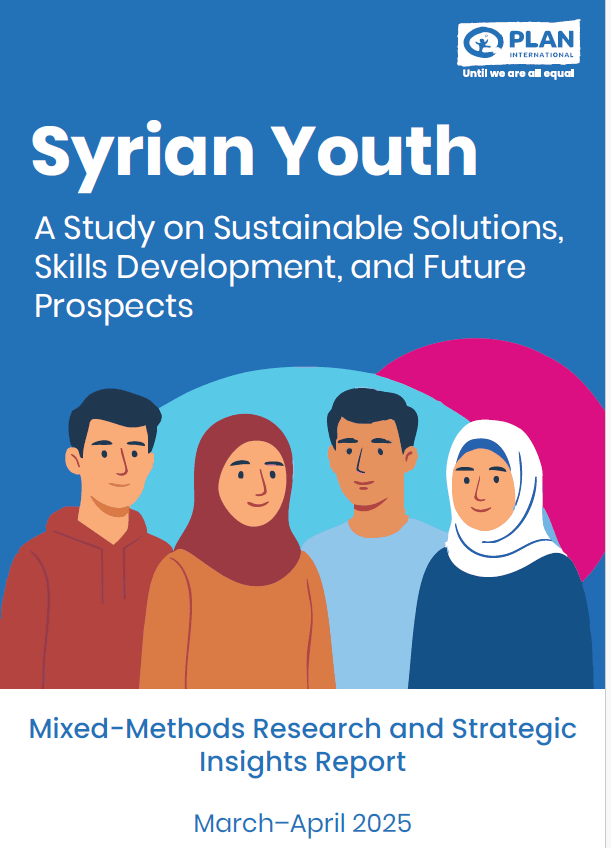Syrian Youth: A Study on Sustainable Solutions, Skills Development, and Future Prospects
Understanding the Aspirations and Challenges of Syrian Refugee Youth
This 2025 study on Syrian refugee youth in Jordan reveals their aspirations, barriers to return, and urgent needs in livelihoods, education, and mental health.

In December 2024, the collapse of the Syrian government marked a turning point for millions of displaced Syrians, including the 5.5 million refugees living in neighbouring countries. Amid this shift, Syrian youth—who represent one-fifth of the refugee population in Jordan—face critical decisions about their future: whether to stay in host communities, return to Syria, or seek opportunities elsewhere.
This study, conducted by Plan International Jordan in early 2025, provides a comprehensive assessment of Syrian refugee youth’s aspirations, challenges, and readiness for potential return or long-term integration in Jordan. Through a mixed-methods approach—combining surveys with 237 youth participants and qualitative focus group discussions with parents and community stakeholders—the research captures the complex realities facing this generation.
Key findings reveal:
- Employment is the top priority: 56% of youth aim to secure jobs or start businesses, but 97.9% lack access to formal employment in Jordan.
- Return intentions are cautious: Only 23% consider returning to Syria, with major concerns around security (78%), economic instability (75%), and housing (58%).
- Education gaps persist: 59% of youth completed secondary education, but financial constraints and Syria’s devastated school system hinder further learning.
- Mental health is a critical need: 62% of youth feel psychologically unprepared for return, citing trauma and economic stress.
Strategic recommendations
The study proposes actionable steps:
- Expand livelihood opportunities: Strengthen vocational training, startup grants, and financial inclusion for youth in Jordan and potential returnees.
- Prioritise mental health: Develop trauma-informed psychosocial programmes and “mental health safety nets” for returning youth.
- Facilitate legal and financial readiness: Offer cash-for-documentation programme and legal aid to ease administrative hurdles.
- Adopt dual programming: Design flexible interventions supporting both integration in Jordan and voluntary return to Syria.
- Engage youth in decision-making: Involve youth in programme design through advisory councils, digital consultations, and leadership roles.
This study underscores the complex realities Syrian youth navigate—balancing hope for stability with profound systemic barriers. Whether they choose to remain in Jordan or return to Syria, their success hinges on access to education, livelihoods, healthcare, and psychosocial support.
Download the study
Syrian Youth: A Study on Sustainable Solutions, Skills Development, and Future Prospects
3.16 mb


